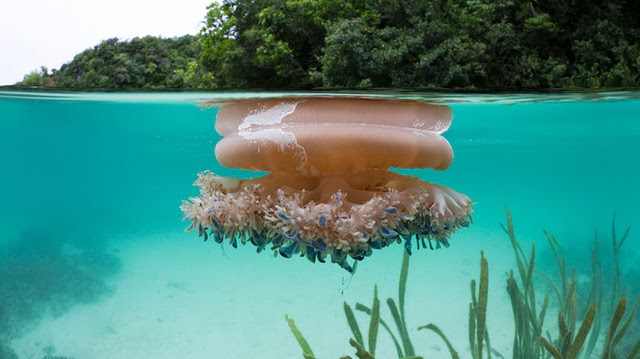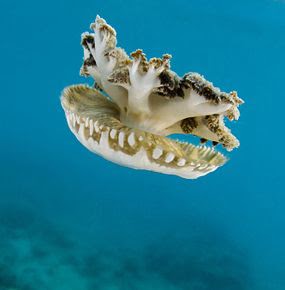Quck answer
Jellyfish may not have brains, but they still exhibit a sleep-like state. Researchers have found that jellyfish go through a period of reduced activity and increased arousal, similar to sleep in humans. During this time, they are less responsive to stimuli and their body movements become slower. This state is thought to be important for jellyfish to conserve energy and avoid predators. Despite lacking a central nervous system, jellyfish are still able to exhibit complex behaviors and respond to their environment. This highlights the importance of studying even the simplest of organisms to better understand the evolution of sleep and consciousness.
Wild Animals

Jellyfish may seem like they have nothing in common with humans, but recent research has found that they share one important trait – the need for sleep. Despite not having brains, the primitive jellyfish in the Cassiopea genus have been found to rest upside down on the ocean floor and sleep. The study, published in the journal Current Biology, discovered that jellyfish sleep by using cameras to observe their behavior at night when they were largely inactive. The researchers also found that it was harder to wake the jellyfish at night than during the day, and that sleep was essential to their daily activities. This discovery could revolutionize sleep science as it shows that sleep is not necessarily a property of neurons or the brain.

The Cassiopea genus includes the upside-down jellyfish, which moves through the water in a unique way.
Now That’s Interesting
Cassiopea jellyfish can often be found resting on the floor of mangrove swamps and sea grass beds, where they lie upside down to expose the algae on their undersides to the sun and photosynthesize.
FAQ
1. Do jellyfish really not have brains?
Yes, it’s true! Jellyfish don’t have brains or central nervous systems like humans or other animals do. Instead, they have a simple nervous system that allows them to sense their surroundings and respond to stimuli.
2. How do jellyfish sleep without a brain?
Scientists have observed that jellyfish go through periods of rest, during which their movements and metabolic activity slow down. This has been interpreted as a form of sleep, even though jellyfish don’t have brains.
3. Do all jellyfish sleep?
While it’s not clear if all jellyfish sleep, researchers have observed this behavior in several different species. It’s possible that some types of jellyfish may not need as much rest as others, depending on their lifestyle and environment.
4. How long do jellyfish sleep for?
The sleep patterns of jellyfish are not well understood, but some studies have found that they may rest for a few hours at a time. However, this can vary depending on the species and other factors.
5. Can jellyfish dream?
Since jellyfish don’t have brains, they are not thought to be capable of dreaming like humans and other animals. However, it’s possible that they experience some form of subconscious activity during their periods of rest.
6. Is sleep important for jellyfish?
It’s not clear if sleep is essential for jellyfish, but it may play a role in their overall health and well-being. Resting periods could allow the jellyfish to conserve energy, repair damaged tissues, or perform other important biological functions.
7. How do scientists study jellyfish sleep?
Researchers can observe the behavior of jellyfish in laboratory settings by monitoring their movements and metabolic activity. They may also use techniques like electrophysiology to measure the electrical signals in the jellyfish’s nervous system.
8. Could studying jellyfish sleep have implications for human sleep research?
While jellyfish and humans are very different, studying the sleep patterns of these creatures could still provide insight into the basic mechanisms of sleep. It could also help researchers develop new models for studying sleep disorders and other conditions.
9. Are there any other unusual sleep patterns in the animal kingdom?
Yes, there are many! Some animals, like dolphins and certain birds, have the ability to sleep with only one half of their brain at a time. Other creatures, like certain species of fish and insects, may enter a state of suspended animation that allows them to survive without oxygen for extended periods of time.





Leave a Reply